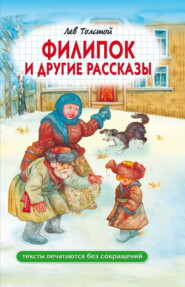По всем вопросам обращайтесь на: info@litportal.ru
(©) 2003-2025.
✖
Anna Karenina
Настройки чтения
Размер шрифта
Высота строк
Поля
"If he hadn’t been going away, I could have understood your answer and his too. But your husband ought to be above that," Betsy was saying.
"It’s not for my husband; for myself I don’t wish it. Don’t say that!" answered Anna’s excited voice.
"Yes, but you must care to say good-bye to a man who has shot himself on your account…"
"That’s just why I don’t want to."
With a dismayed and guilty expression, Alexey Alexandrovitch stopped and would have gone back unobserved. But reflecting that this would be undignified, he turned back again, and clearing his throat, he went up to the bedroom. The voices were silent, and he went in.
Anna, in a gray dressing gown, with a crop of short clustering black curls on her round head, was sitting on a settee. The eagerness died out of her face, as it always did, at the sight of her husband; she dropped her head and looked round uneasily at Betsy. Betsy, dressed in the height of the latest fashion, in a hat that towered somewhere over her head like a shade on a lamp, in a blue dress with violet crossway stripes slanting one way on the bodice and the other way on the skirt, was sitting beside Anna, her tall flat figure held erect. Bowing her head, she greeted Alexey Alexandrovitch with an ironical smile.
"Ah!" she said, as though surprised. "I’m very glad you’re at home. You never put in an appearance anywhere, and I haven’t seen you ever since Anna has been ill. I have heard all about it – your anxiety. Yes, you’re a wonderful husband!" she said, with a meaning and affable air, as though she were bestowing an order of magnanimity on him for his conduct to his wife.
Alexey Alexandrovitch bowed frigidly, and kissing his wife’s hand, asked how she was.
"Better, I think," she said, avoiding his eyes.
"But you’ve rather a feverish-looking color," he said, laying stress on the word "feverish."
"We’ve been talking too much," said Betsy. "I feel it’s selfishness on my part, and I am going away."
She got up, but Anna, suddenly flushing, quickly caught at her hand.
"No, wait a minute, please. I must tell you … no, you." she turned to Alexey Alexandrovitch, and her neck and brow were suffused with crimson. "I won’t and can’t keep anything secret from you," she said.
Alexey Alexandrovitch cracked his fingers and bowed his head.
"Betsy’s been telling me that Count Vronsky wants to come here to say good-bye before his departure for Tashkend." She did not look at her husband, and was evidently in haste to have everything out, however hard it might be for her. "I told her I could not receive him."
"You said, my dear, that it would depend on Alexey Alexandrovitch," Betsy corrected her.
"Oh, no, I can’t receive him; and what object would there…" She stopped suddenly, and glanced inquiringly at her husband (he did not look at her). "In short, I don’t wish it…"
Alexey Alexandrovitch advanced and would have taken her hand.
Her first impulse was to jerk back her hand from the damp hand with big swollen veins that sought hers, but with an obvious effort to control herself she pressed his hand.
"I am very grateful to you for your confidence, but…" he said, feeling with confusion and annoyance that what he could decide easily and clearly by himself, he could not discuss before Princess Tverskaya, who to him stood for the incarnation of that brute force which would inevitably control him in the life he led in the eyes of the world, and hinder him from giving way to his feeling of love and forgiveness. He stopped short, looking at Princess Tverskaya.
"Well, good-bye, my darling," said Betsy, getting up. She kissed Anna, and went out. Alexey Alexandrovitch escorted her out.
"Alexey Alexandrovitch! I know you are a truly magnanimous man," said Betsy, stopping in the little drawing-room, and with special warmth shaking hands with him once more. "I am an outsider, but I so love her and respect you that I venture to advise. Receive him. Alexey Vronsky is the soul of honor, and he is going away to Tashkend."
"Thank you, princess, for your sympathy and advice. But the question of whether my wife can or cannot see anyone she must decide herself."
He said this from habit, lifting his brows with dignity, and reflected immediately that whatever his words might be, there could be no dignity in his position. And he saw this by the suppressed, malicious, and ironical smile with which Betsy glanced at him after this phrase.
Chapter 20
Alexey Alexandrovitch took leave of Betsy in the drawing room, and went to his wife. She was lying down, but hearing his steps she sat up hastily in her former attitude, and looked in a scared way at him. He saw she had been crying.
"I am very grateful for your confidence in me." He repeated gently in Russian the phrase he had said in Betsy’s presence in French, and sat down beside her. When he spoke to her in Russian, using the Russian "thou" of intimacy and affection, it was insufferably irritating to Anna. "And I am very grateful for your decision. I, too, imagine that since he is going away, there is no sort of necessity for Count Vronsky to come here. However, if…"
"But I’ve said so already, so why repeat it?" Anna suddenly interrupted him with an irritation she could not succeed in repressing. "No sort of necessity," she thought, "for a man to come and say good-bye to the woman he loves, for whom he was ready to ruin himself, and has ruined himself, and who cannot live without him. No sort of necessity!" she compressed her lips, and dropped her burning eyes to his hands with their swollen veins. They were rubbing each other.
"Let us never speak of it," she added more calmly.
"I have left this question to you to decide, and I am very glad to see…" Alexey Alexandrovitch was beginning.
"That my wish coincides with your own," she finished quickly, exasperated at his talking so slowly while she knew beforehand all he would say.
"Yes," he assented; "and Princess Tverskaya’s interference in the most difficult private affairs is utterly uncalled for. She especially…"
"I don’t believe a word of what’s said about her," said Anna quickly. "I know she really cares for me."
Alexey Alexandrovitch sighed and said nothing. She played nervously with the tassel of her dressing-gown, glancing at him with that torturing sensation of physical repulsion for which she blamed herself, though she could not control it. Her only desire now was to be rid of his oppressive presence.
"I have just sent for the doctor," said Alexey Alexandrovitch.
"I am very well; what do I want the doctor for?"
"No, the little one cries, and they say the nurse hasn’t enough milk."
"Why didn’t you let me nurse her, when I begged to? Anyway" (Alexey Alexandrovitch knew what was meant by that "anyway"), "she’s a baby, and they’re killing her." She rang the bell and ordered the baby to be brought her. "I begged to nurse her, I wasn’t allowed to, and now I’m blamed for it."
"I don’t blame…"
"Yes, you do blame me! My God! why didn’t I die!" And she broke into sobs. "Forgive me, I’m nervous, I’m unjust," she said, controlling herself, "but do go away…"
"No, it can’t go on like this," Alexey Alexandrovitch said to himself decidedly as he left his wife’s room.
Never had the impossibility of his position in the world’s eyes, and his wife’s hatred of him, and altogether the might of that mysterious brutal force that guided his life against his spiritual inclinations, and exacted conformity with its decrees and change in his attitude to his wife, been presented to him with such distinctness as that day. He saw clearly that all the world and his wife expected of him something, but what exactly, he could not make out. He felt that this was rousing in his soul a feeling of anger destructive of his peace of mind and of all the good of his achievement. He believed that for Anna herself it would be better to break off all relations with Vronsky; but if they all thought this out of the question, he was even ready to allow these relations to be renewed, so long as the children were not disgraced, and he was not deprived of them nor forced to change his position. Bad as this might be, it was anyway better than a rupture, which would put her in a hopeless and shameful position, and deprive him of everything he cared for. But he felt helpless; he knew beforehand that every one was against him, and that he would not be allowed to do what seemed to him now so natural and right, but would be forced to do what was wrong, though it seemed the proper thing to them.
Chapter 21
Before Betsy had time to walk out of the drawing-room, she was met in the doorway by Stepan Arkadyevitch, who had just come from Yeliseev’s, where a consignment of fresh oysters had been received.
"Ah! princess! what a delightful meeting!" he began. "I’ve been to see you."
"A meeting for one minute, for I’m going," said Betsy, smiling and putting on her glove.
"Don’t put on your glove yet, princess; let me kiss your hand. There’s nothing I’m so thankful to the revival of the old fashions for as the kissing the hand." He kissed Betsy’s hand. "When shall we see each other?"
"You don’t deserve it," answered Betsy, smiling.
"Oh, yes, I deserve a great deal, for I’ve become a most serious person. I don’t only manage my own affairs, but other people’s too," he said, with a significant expression.
"Oh, I’m so glad!" answered Betsy, at once understanding that he was speaking of Anna. And going back into the drawing room, they stood in a corner. "He’s killing her," said Betsy in a whisper full of meaning. "It’s impossible, impossible…"
"It’s not for my husband; for myself I don’t wish it. Don’t say that!" answered Anna’s excited voice.
"Yes, but you must care to say good-bye to a man who has shot himself on your account…"
"That’s just why I don’t want to."
With a dismayed and guilty expression, Alexey Alexandrovitch stopped and would have gone back unobserved. But reflecting that this would be undignified, he turned back again, and clearing his throat, he went up to the bedroom. The voices were silent, and he went in.
Anna, in a gray dressing gown, with a crop of short clustering black curls on her round head, was sitting on a settee. The eagerness died out of her face, as it always did, at the sight of her husband; she dropped her head and looked round uneasily at Betsy. Betsy, dressed in the height of the latest fashion, in a hat that towered somewhere over her head like a shade on a lamp, in a blue dress with violet crossway stripes slanting one way on the bodice and the other way on the skirt, was sitting beside Anna, her tall flat figure held erect. Bowing her head, she greeted Alexey Alexandrovitch with an ironical smile.
"Ah!" she said, as though surprised. "I’m very glad you’re at home. You never put in an appearance anywhere, and I haven’t seen you ever since Anna has been ill. I have heard all about it – your anxiety. Yes, you’re a wonderful husband!" she said, with a meaning and affable air, as though she were bestowing an order of magnanimity on him for his conduct to his wife.
Alexey Alexandrovitch bowed frigidly, and kissing his wife’s hand, asked how she was.
"Better, I think," she said, avoiding his eyes.
"But you’ve rather a feverish-looking color," he said, laying stress on the word "feverish."
"We’ve been talking too much," said Betsy. "I feel it’s selfishness on my part, and I am going away."
She got up, but Anna, suddenly flushing, quickly caught at her hand.
"No, wait a minute, please. I must tell you … no, you." she turned to Alexey Alexandrovitch, and her neck and brow were suffused with crimson. "I won’t and can’t keep anything secret from you," she said.
Alexey Alexandrovitch cracked his fingers and bowed his head.
"Betsy’s been telling me that Count Vronsky wants to come here to say good-bye before his departure for Tashkend." She did not look at her husband, and was evidently in haste to have everything out, however hard it might be for her. "I told her I could not receive him."
"You said, my dear, that it would depend on Alexey Alexandrovitch," Betsy corrected her.
"Oh, no, I can’t receive him; and what object would there…" She stopped suddenly, and glanced inquiringly at her husband (he did not look at her). "In short, I don’t wish it…"
Alexey Alexandrovitch advanced and would have taken her hand.
Her first impulse was to jerk back her hand from the damp hand with big swollen veins that sought hers, but with an obvious effort to control herself she pressed his hand.
"I am very grateful to you for your confidence, but…" he said, feeling with confusion and annoyance that what he could decide easily and clearly by himself, he could not discuss before Princess Tverskaya, who to him stood for the incarnation of that brute force which would inevitably control him in the life he led in the eyes of the world, and hinder him from giving way to his feeling of love and forgiveness. He stopped short, looking at Princess Tverskaya.
"Well, good-bye, my darling," said Betsy, getting up. She kissed Anna, and went out. Alexey Alexandrovitch escorted her out.
"Alexey Alexandrovitch! I know you are a truly magnanimous man," said Betsy, stopping in the little drawing-room, and with special warmth shaking hands with him once more. "I am an outsider, but I so love her and respect you that I venture to advise. Receive him. Alexey Vronsky is the soul of honor, and he is going away to Tashkend."
"Thank you, princess, for your sympathy and advice. But the question of whether my wife can or cannot see anyone she must decide herself."
He said this from habit, lifting his brows with dignity, and reflected immediately that whatever his words might be, there could be no dignity in his position. And he saw this by the suppressed, malicious, and ironical smile with which Betsy glanced at him after this phrase.
Chapter 20
Alexey Alexandrovitch took leave of Betsy in the drawing room, and went to his wife. She was lying down, but hearing his steps she sat up hastily in her former attitude, and looked in a scared way at him. He saw she had been crying.
"I am very grateful for your confidence in me." He repeated gently in Russian the phrase he had said in Betsy’s presence in French, and sat down beside her. When he spoke to her in Russian, using the Russian "thou" of intimacy and affection, it was insufferably irritating to Anna. "And I am very grateful for your decision. I, too, imagine that since he is going away, there is no sort of necessity for Count Vronsky to come here. However, if…"
"But I’ve said so already, so why repeat it?" Anna suddenly interrupted him with an irritation she could not succeed in repressing. "No sort of necessity," she thought, "for a man to come and say good-bye to the woman he loves, for whom he was ready to ruin himself, and has ruined himself, and who cannot live without him. No sort of necessity!" she compressed her lips, and dropped her burning eyes to his hands with their swollen veins. They were rubbing each other.
"Let us never speak of it," she added more calmly.
"I have left this question to you to decide, and I am very glad to see…" Alexey Alexandrovitch was beginning.
"That my wish coincides with your own," she finished quickly, exasperated at his talking so slowly while she knew beforehand all he would say.
"Yes," he assented; "and Princess Tverskaya’s interference in the most difficult private affairs is utterly uncalled for. She especially…"
"I don’t believe a word of what’s said about her," said Anna quickly. "I know she really cares for me."
Alexey Alexandrovitch sighed and said nothing. She played nervously with the tassel of her dressing-gown, glancing at him with that torturing sensation of physical repulsion for which she blamed herself, though she could not control it. Her only desire now was to be rid of his oppressive presence.
"I have just sent for the doctor," said Alexey Alexandrovitch.
"I am very well; what do I want the doctor for?"
"No, the little one cries, and they say the nurse hasn’t enough milk."
"Why didn’t you let me nurse her, when I begged to? Anyway" (Alexey Alexandrovitch knew what was meant by that "anyway"), "she’s a baby, and they’re killing her." She rang the bell and ordered the baby to be brought her. "I begged to nurse her, I wasn’t allowed to, and now I’m blamed for it."
"I don’t blame…"
"Yes, you do blame me! My God! why didn’t I die!" And she broke into sobs. "Forgive me, I’m nervous, I’m unjust," she said, controlling herself, "but do go away…"
"No, it can’t go on like this," Alexey Alexandrovitch said to himself decidedly as he left his wife’s room.
Never had the impossibility of his position in the world’s eyes, and his wife’s hatred of him, and altogether the might of that mysterious brutal force that guided his life against his spiritual inclinations, and exacted conformity with its decrees and change in his attitude to his wife, been presented to him with such distinctness as that day. He saw clearly that all the world and his wife expected of him something, but what exactly, he could not make out. He felt that this was rousing in his soul a feeling of anger destructive of his peace of mind and of all the good of his achievement. He believed that for Anna herself it would be better to break off all relations with Vronsky; but if they all thought this out of the question, he was even ready to allow these relations to be renewed, so long as the children were not disgraced, and he was not deprived of them nor forced to change his position. Bad as this might be, it was anyway better than a rupture, which would put her in a hopeless and shameful position, and deprive him of everything he cared for. But he felt helpless; he knew beforehand that every one was against him, and that he would not be allowed to do what seemed to him now so natural and right, but would be forced to do what was wrong, though it seemed the proper thing to them.
Chapter 21
Before Betsy had time to walk out of the drawing-room, she was met in the doorway by Stepan Arkadyevitch, who had just come from Yeliseev’s, where a consignment of fresh oysters had been received.
"Ah! princess! what a delightful meeting!" he began. "I’ve been to see you."
"A meeting for one minute, for I’m going," said Betsy, smiling and putting on her glove.
"Don’t put on your glove yet, princess; let me kiss your hand. There’s nothing I’m so thankful to the revival of the old fashions for as the kissing the hand." He kissed Betsy’s hand. "When shall we see each other?"
"You don’t deserve it," answered Betsy, smiling.
"Oh, yes, I deserve a great deal, for I’ve become a most serious person. I don’t only manage my own affairs, but other people’s too," he said, with a significant expression.
"Oh, I’m so glad!" answered Betsy, at once understanding that he was speaking of Anna. And going back into the drawing room, they stood in a corner. "He’s killing her," said Betsy in a whisper full of meaning. "It’s impossible, impossible…"

















